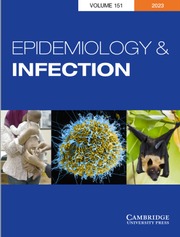Article contents
On the Protective and Curative Properties of certain Foodstuffs against Polyneuritis induced in Birds by a Diet of Polished Rice
Published online by Cambridge University Press: 15 May 2009
Extract
1. Pigeons fed on daily rations of polished rice equal to 1/20th their initial body-weight develop symptoms of polyneuritis in about three weeks and usually lose considerably in weight.
2. The efficacies of various ox-tissues for preventing polyneuritis have been determined, and the tissues arranged according to their anti-neuritic powers are in the following descending order: liver, cardiac-muscle, cerebrum, cerebellum, voluntary muscle, and (cows') milk.
3. Alcoholic extracts of the excreta of a hen fed on unpolished grain and of the faeces of a rabbit fed on bread and cabbage cured polyneuritis in pigeons. The whole content of anti-neuritic substances present in the dietary was therefore not absorbed or else some amount is synthesised by the bacteria of which the faeces consisted to a considerable extent. No conclusions can consequently be drawn as to the actual distribution of the active substances in the animal body, until the extent to which the various tissues are absorbed from the alimentary canal of birds has been determined.
4. Nuts (husked filberts) are very efficient in preventing polyneuritis, being even superior to lentils and husked barley. Cheddar cheese, on the other hand, even in considerable amount, has no preventive effect.
5. Malt extract taken from two different samples readily cured polyneuritis in pigeons. A third sample however even in large doses had no curative action.
6. For the prevention of beri-beri egg-yolk, heart-muscle, liver, nuts, barley, and lentils can be recommended as suitable foodstuffs with which to supplement the polished rice diet. As meat (voluntary muscle) has been frequently found to be ineffective in preventing epidemics of beri-beri, its replacement by heart and liver in mixed diets would be a considerable improvement, because, not only are these tissues when suitably prepared as nutritious as voluntary muscle, but they also contain the anti-neuritic substances in much higher concentration.
- Type
- Research Article
- Information
- Copyright
- Copyright © Cambridge University Press 1914
References
REFERENCES
- 23
- Cited by


